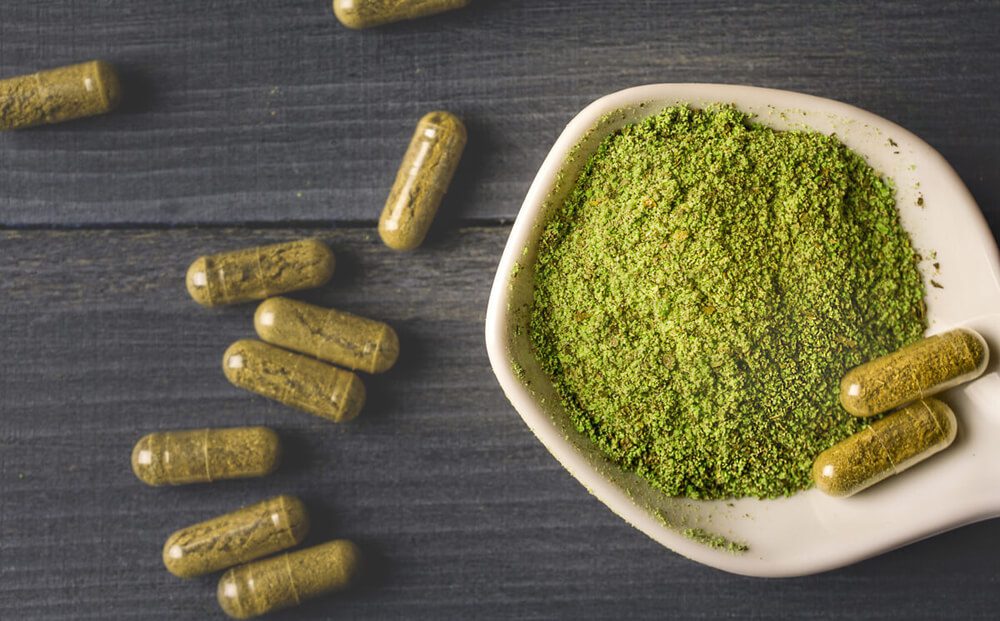Kratom, a natural substance that is used by consumers for relief from pain and anxiety, to combat the symptoms associated with opioid withdrawal, and more, has been a point of contention in American society for some time. Many believe it is a necessary, life-saving medicine while others oppose it. Recently, bipartisan lawmakers in Congress have submitted a bill that would protect consumer access to this substance. This makes the bill the first piece of standalone congressional kratom legislation to be proposed.
Named the Federal Clarity for Kratom Consumers Act, this bill would stop the U.S. Department of Health and Human Services (HHS) from enacting further limitations to kratom that would be more restrictive than under the Federal Food, Drug, and Cosmetic Act (FDAC).
The bill also states that the department would not be able to treat kratom or any kratom-related products/substances as an adulterated dietary supplement.
Sponsored by Senators Cory Booker (D-NJ), Rep. Mark Pocan (D-WI), and Mike Lee (R-UT), this bill helps ensure those who benefit from kratom in their daily lives have access to a safe alternative that curbs their symptoms while reducing their dependency.
“I have heard countless stories of the benefits of kratom experienced by consumers across the country, including veterans, law enforcement officials, and everyday Americans who credit kratom with saving their lives,” Lee said in a press release distributed by the American Kratom Association (AKA) on Wednesday. “This legislation that we introduced today will be life-changing for these Americans. The [Food and Drug Administration] needs to fulfill its duty to protect consumers, not abuse their powers in ways the Congress never intended.”
Pocan stated that “kratom can be a harm reduction tool for those struggling with opioid dependency across the country—it doesn’t belong in our broken drug scheduling system.”
“This legislation will prevent the criminalization of kratom consumers and distributors while promising scientific research is conducted,” he said.
In order to abide by the legislation, the secretary of the HHS must hold at least one public hearing to address and assess the data on the health risks and the benefits the plant provides. Leading scientific researchers would contribute their findings and weigh in on topics such as the number of Americans who use kratom, the likelihood of people misusing the substance, and more.
The main objective of this proposed legislation is to ensure that federal agencies don’t unjustly limit access to this natural medicine.

The HHS would also have to create a “Kratom Research Task Force” that would “coordinate kratom-related research conducted or supported by the Federal Government.”
It is the job of this task force to send a report to Congress and the HHS secretary within 90 days of the bill being enacted. The report must discuss “all federally-funded kratom-related research that has begun or been completed.” The panel would then need to meet and update Congress quarterly with any new findings and results from ongoing studies.
The bill stipulates that “The Kratom Research Task Force shall convene public meetings with appropriate experts and stakeholders to increase public awareness concerning the current state of kratom-related research.” Once two years have elapsed since the submission of the initial report, the task force will then be dissolved.
Another section of the bill states “The Secretary may not issue, implement, or enforce an import alert for a kratom or kratom-derived product unless the Secretary determines that there is a history of such kratom or kratom-derived product being adulterated.”
There is also a section in the document that discusses states’ rights and nothing in the bill is intended to interfere with measures that are already in place to protect kratom access.
“The introduction of this legislation is a landmark victory for kratom consumers across the country,” says Mac Haddow, a public policy representative at AKA.
He stated that “Research has shown kratom to have significantly less potential for harm than substances with a much higher safety and addiction profile and the responsible regulation of kratom products will open the door for continued research. We encourage the swift passage of this bill so that the millions of people who consume kratom every year will have these important protections in place.”
While this bill is the first of its kind, Congress has tried to speak to kratom issues using different methods. In the past, the House had included some language contained in a spending bill report that implied research would be conducted into an opioid alternative, but that language was cut due to the final appropriations package that was recently released.
Mark Pocan (D-WI) has been a strong advocate for kratom, believing in its potential to help people. In May, he stated his gratitude toward the National Institute on Drug Abuse (NIDA) for allocating funds for researching the medicine.
A win on the international level came last year when the United Nations World Health Organization (WHO) decided to recommend that kratom not be globally prohibited.
Currently, kratom is not included in the list noted by the federal Controlled Substances Act (CSA) or under any international drug treaties agreed upon by the U.S.
Over the years, federal agencies have bounced around on whether or not kratom should be included in a list for international control, but the lawmakers have stated that there is “no conclusive evidence that would warrant the United States voting in favor of an international control of this substance.”
With this bill being introduced and recent scientific victories, kratom, and those whose lives are improved by kratom on a daily basis, may finally receive the protection they desperately need.


